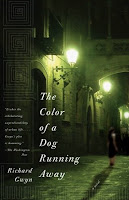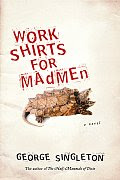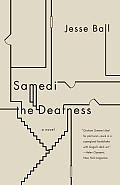BOOK REVIEW: The Girls by Lori Lansens
 Rose and Ruby Darlen, like any sisters, can be each other’s best friend or worst enemy. Born during a tornado, “The Girls”, as they’ve been dubbed by the residents of their small Southern Ontario town, share a different life than most sisters. Craniopagus twins (joined at the head – they share a skull bone and blood supply), they were abandoned at birth by a desperate teenage mother and raised by Aunt Lovey (the nurse who helped bring them into the world) and Uncle Stash.
Rose and Ruby Darlen, like any sisters, can be each other’s best friend or worst enemy. Born during a tornado, “The Girls”, as they’ve been dubbed by the residents of their small Southern Ontario town, share a different life than most sisters. Craniopagus twins (joined at the head – they share a skull bone and blood supply), they were abandoned at birth by a desperate teenage mother and raised by Aunt Lovey (the nurse who helped bring them into the world) and Uncle Stash.
Rose has independent motion but her face is pulled to one side and her limbs are no longer perfectly proportioned due to carrying Ruby on her hip since she was a toddler. Ruby, while dependent on her sister for mobility, has the perfect face and beauty both would have shared if not born conjoined. Determined to beat the odds and provide her girls with a life of value, Aunt Lovey pushes them from infancy toward independence. Now 29 years old, The Girls have lived much longer than the doctors predicted and, with their 30th birthday approaching, Rose decides to write the story of her life, convincing the reluctant Ruby to do the same.
Told in the alternating voices of Rose and Ruby, Lori Lansens’ The Girls is a haunting novel. The voices of The Girls are unique and their viewpoints on events fascinating. Rose, as the aspiring writer, initially composes the majority of the chapters but as the novel progresses, Ruby relates more of her own thoughts and memories.
The sisters can’t see each other without the aid of a mirror and so each writes their chapters in isolation, with the intention of reading the other’s work after it is finished. The most fascinating aspect of The Girls is the assumptions each makes about what the other related and how that dictates what each in turn shares with the reader. What is most illuminating is what each chooses not to share. Rose portrays herself as the more reliable narrator, speaking to her readers in a serious, methodical tone while Ruby’s contributions are breezy. Their accounts of the same events often contradict and the reader is left to ferret out the truth.
In the end, it is the reader’s own assumptions and reflexive reaction of pity for The Girls which is destroyed. Rose and Ruby are so much more than objects of pity, but to discuss much more of this special novel would be to give away too many of its secrets – ones readers should discover for themselves.
ISBN10: 0316066346
ISBN13: 9780316066341
Trade Paperback
368 Pages
Publisher: Back Bay Books
Publication Date: April 10, 2007
(Mass Market edition available in Canada from Seal Books)
tags: books book reviews fiction conjoined twins Lori Lansens
































































